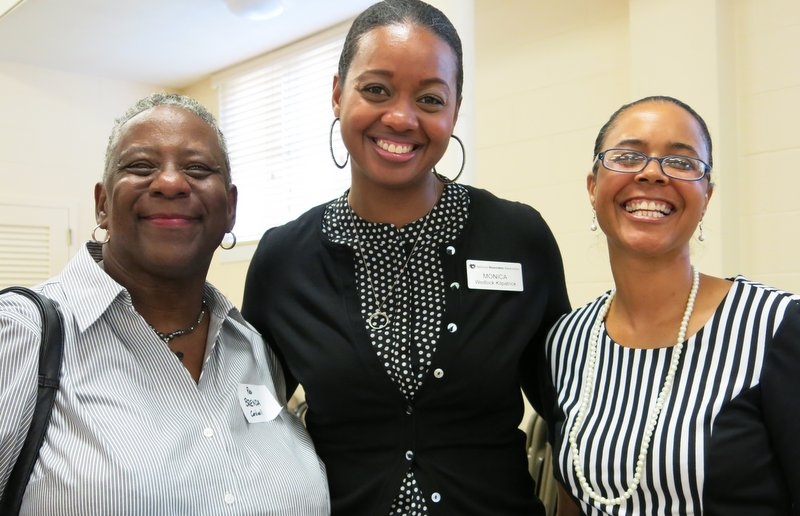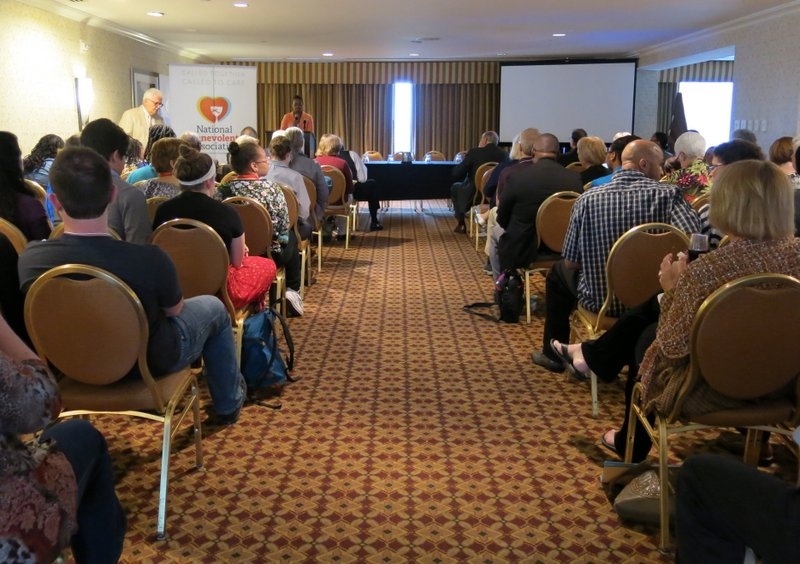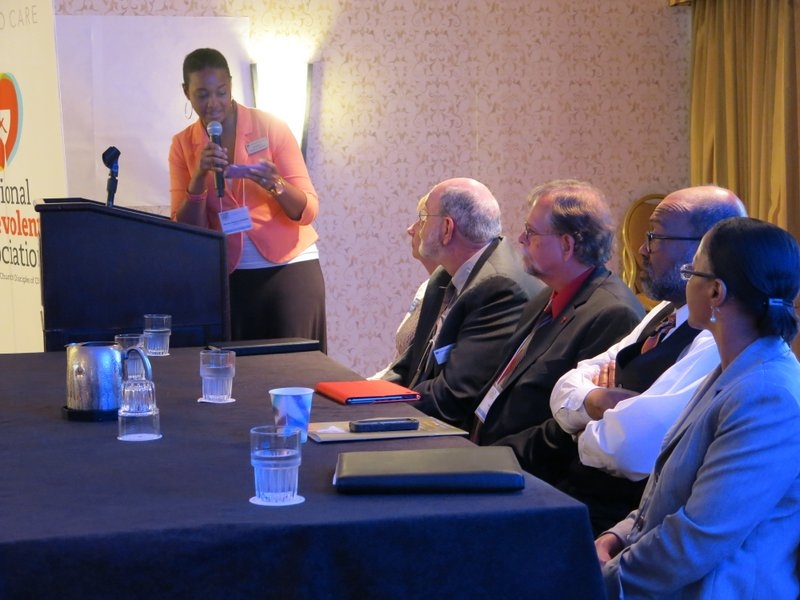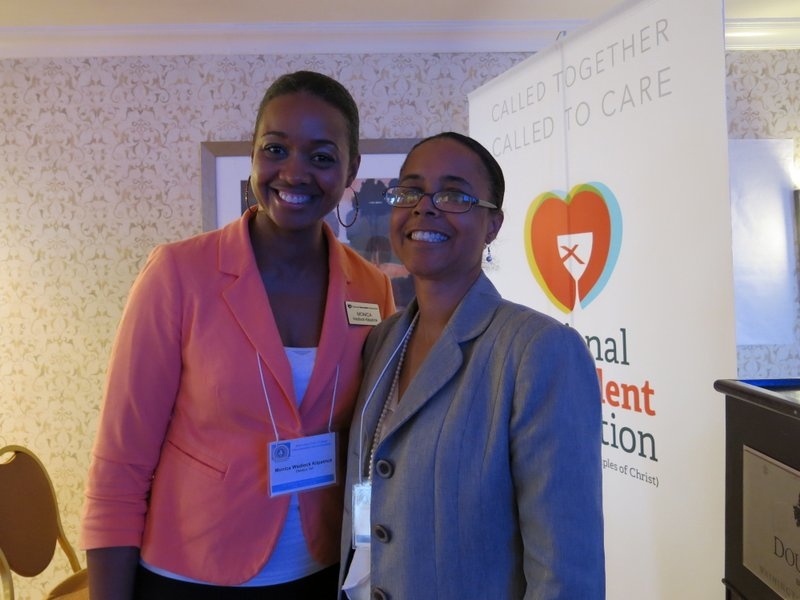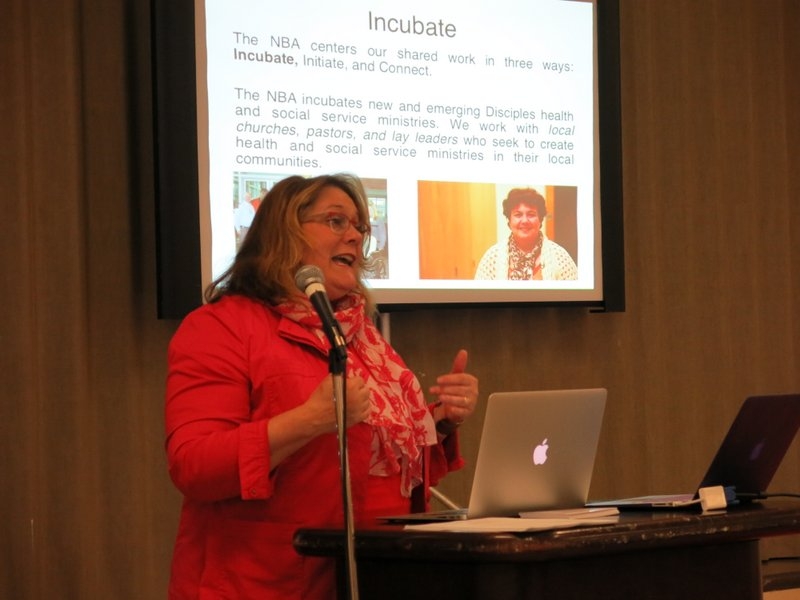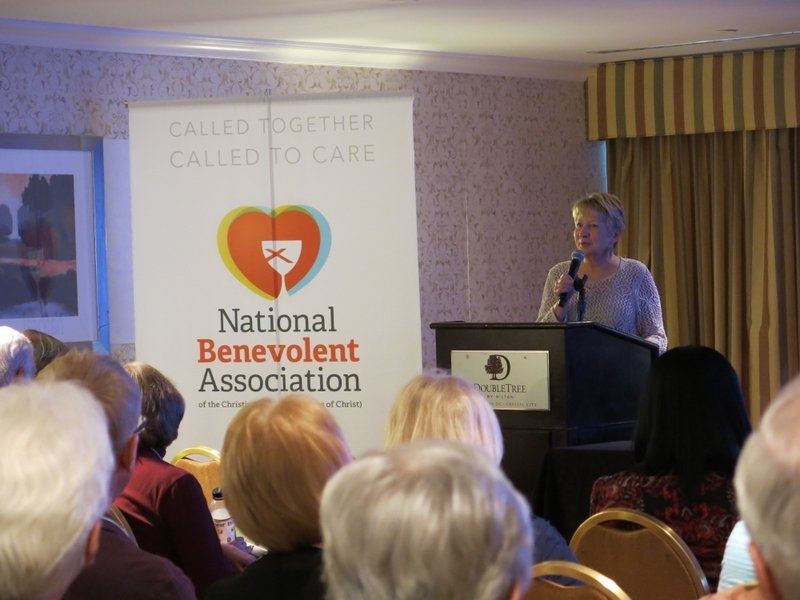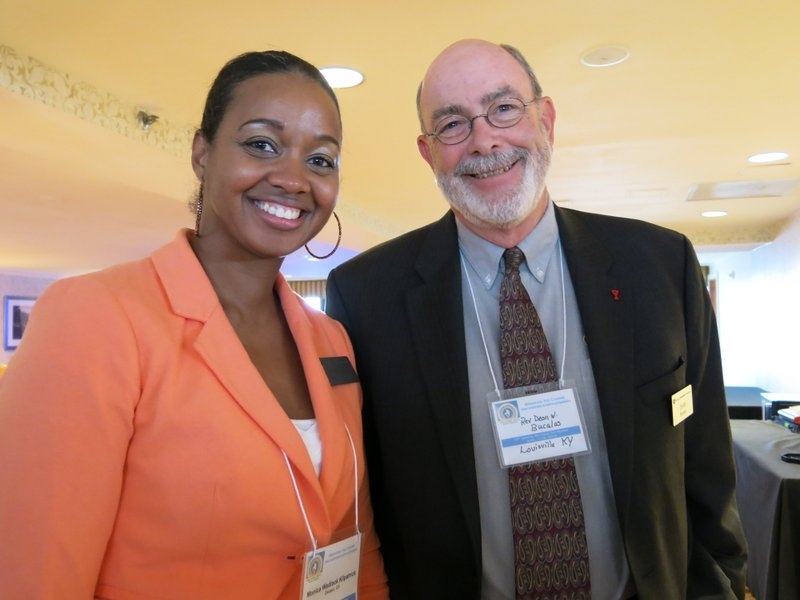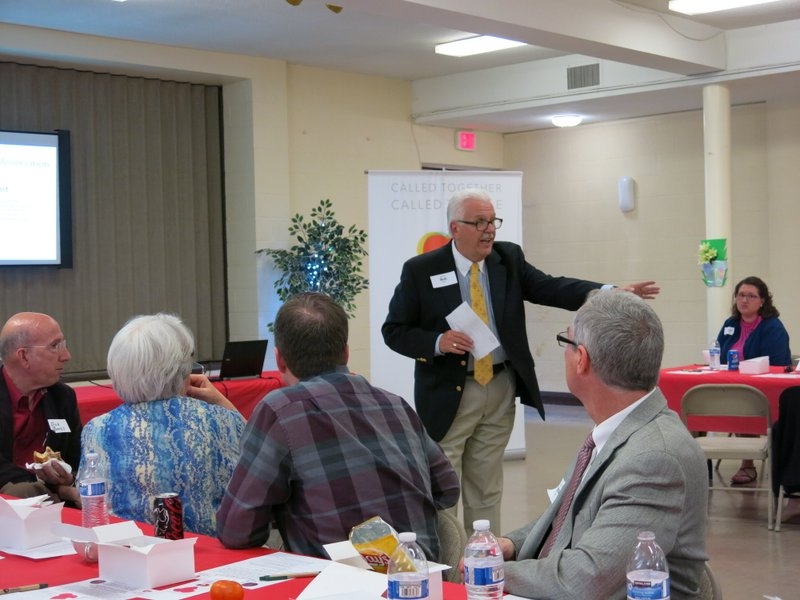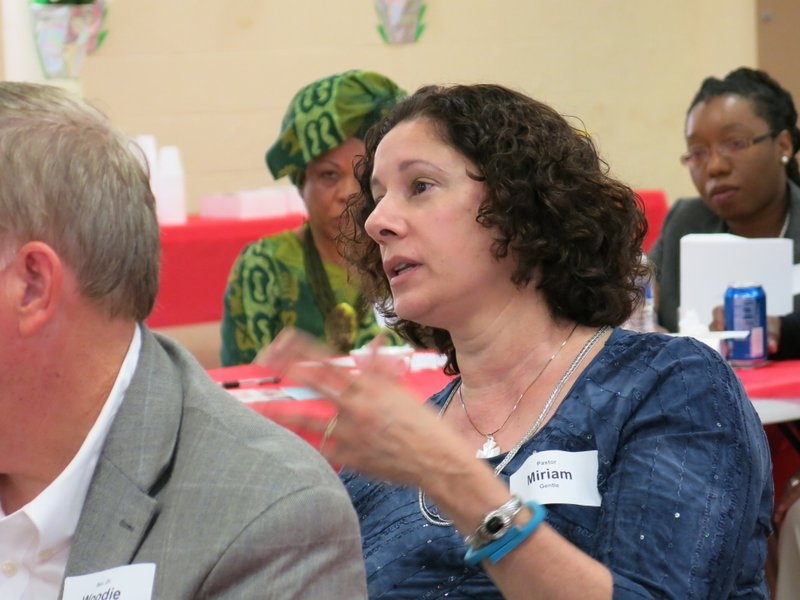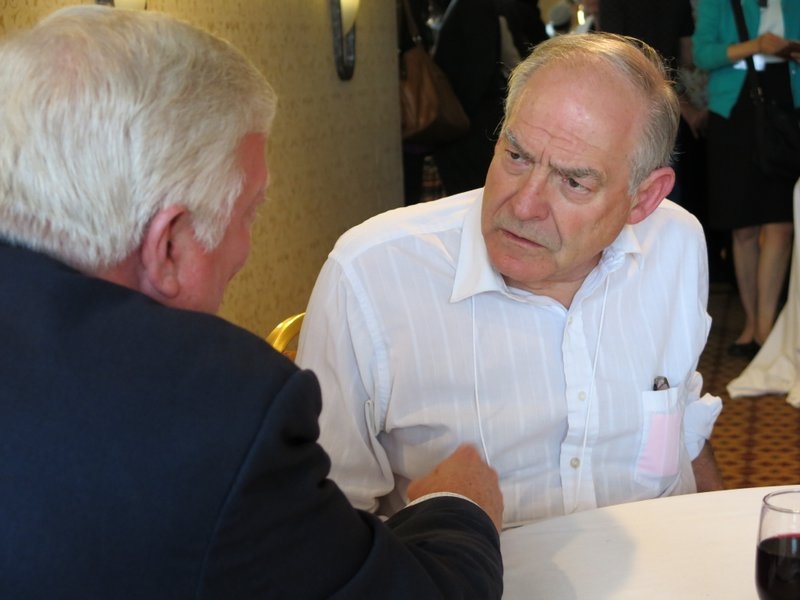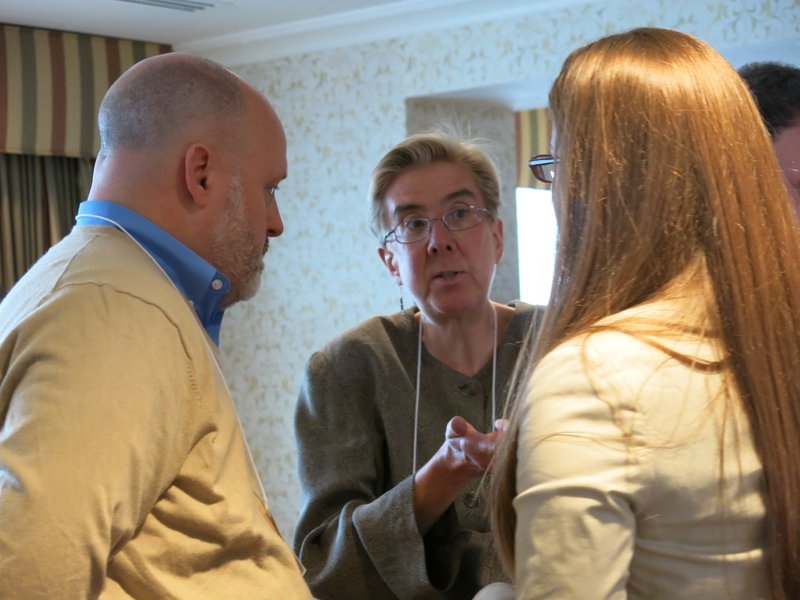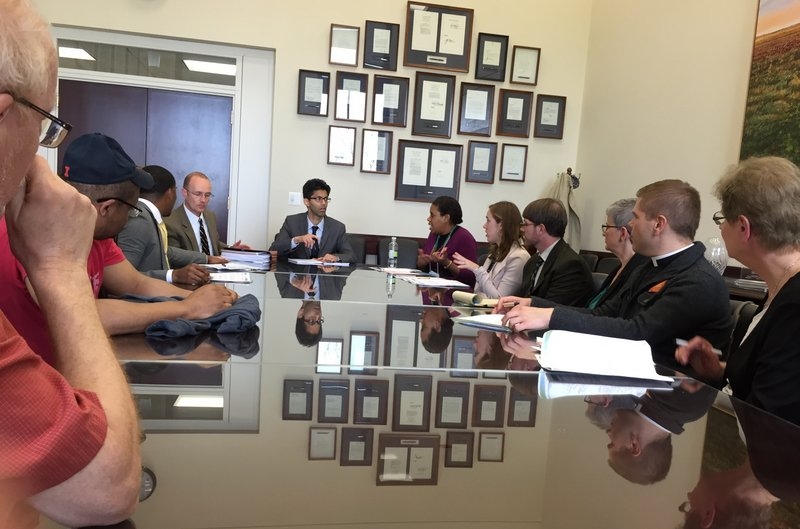NBA Advocates to “Break the Chains” at 2015 Ecumenical Advocacy Days
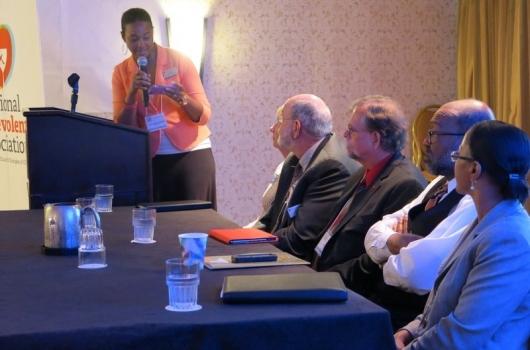 From April 17-20, representatives from the National Benevolent Association of the Christian Church (Disciples of Christ) came together with more than 1,000 fellow Christians in Washington, D.C. to advocate for “breaking the chains” of mass incarceration and systems of exploitation in our country.
From April 17-20, representatives from the National Benevolent Association of the Christian Church (Disciples of Christ) came together with more than 1,000 fellow Christians in Washington, D.C. to advocate for “breaking the chains” of mass incarceration and systems of exploitation in our country.
Here we offer some insight into the experience via a brief Q&A with three NBA leaders: Mark Anderson, President and CEO; Rev. Rebecca L. Hale, Vice President of Mission and Ministry; and Rev. Monica Wedlock Kilpatrick, Director of Disciples Care Exchange and Affinity Groups.
What were your key takeaways from the 2015 EAD?
Anderson: There are incredible ministries taking place in the life of the church across the country. There are various approaches to serving those incarcerated and their families. I also learned that most folks in prison will be returning to the community at some point, so what steps can we take as Christians to welcome them back into the community?
Hale: Exactly. People are very aware that becoming communities of welcome for returning citizens is a core concern, and they are looking for strategies and ways to engage as congregations.
Kilpatrick: Pastors and church leaders must begin to have a church-wide conversation with our congregations about mass incarceration, advocacy for those imprisoned, and how to welcome those who are returning. Given the vast numbers of those in prison today—especially those from African-American and Latino/a communities—every congregation member has a family member in prison or knows someone who has a family member in prison. Unfortunately, the shame and guilt of that reality keeps us all silent.
Anderson: We need to break that silence and begin this “re-entry” into the community at the point when someone enters prison, not just the week before he/she is scheduled for release.
What impressed you the most during EAD?
Anderson: I was impressed by the diverse representation from the Christian communities of faith, and the immense dedication and passion they have in caring for those who are incarcerated.
Hale: And further, how long and passionately many people have been working on the issue of mass incarceration from an advocacy perspective, and how effective that effort has been. This is a major topic, and it is clear that some tides, in terms of sentencing laws, are changing. We can make a difference.
Why is it important for Disciples to get involved with the issues of mass incarceration and justice within America’s prisons and jails?
Hale: For me, I come at this from the question of, given the reality of mass incarceration and the effect this is having on our communities, how do we engage the returning citizen in our communities of faith? As noted, every single Disciple congregation has persons, loved ones and family members in jail and prison—and 95 percent of the current prison and jail population will return to our communities. Are we going to create systems of welcome for them as they return?
Kilpatrick: Disciples are called to be a movement for wholeness in a fragmented world. What is more fragmenting than mothers, fathers, sons, daughters, friends who are torn apart by unjust systems of exploitation and slavery? It is Disciples, along with so many others, who are called to do our part in advocating for change and to help re-build broken relationships as a result of a broken system.
Anderson: To build upon that—Jesus has called upon us to “visit those in prison.” I believe Disciples have a unique opportunity to share with people who have felt there is no hope. We are the people of the table, where all are welcomed. Those who have been wronged and those who are the wrongdoers…they are all welcome to the Lord’s table.
What are NBA’s next steps relating to Prison and Jail Ministries?
Kilpatrick: The Prison and Jail Ministries Affinity Group will continue its work of educating and training congregations and communities regarding the issue of mass incarceration and re-entry for returning citizens through webinars, training programs, workshops, blogs, and advocacy efforts. We are also hoping to bring together 12-15 practitioners serving in prison- and jail-related ministries across the Christian Church (Disciples of Christ) to more intimately share their work and knowledge with one another, to support one another, and to explore avenues of collaboration in addressing these issues.
Hale: In addition to those efforts, we are looking to incubate a ministry that is designed to help congregations engage returning citizens.
